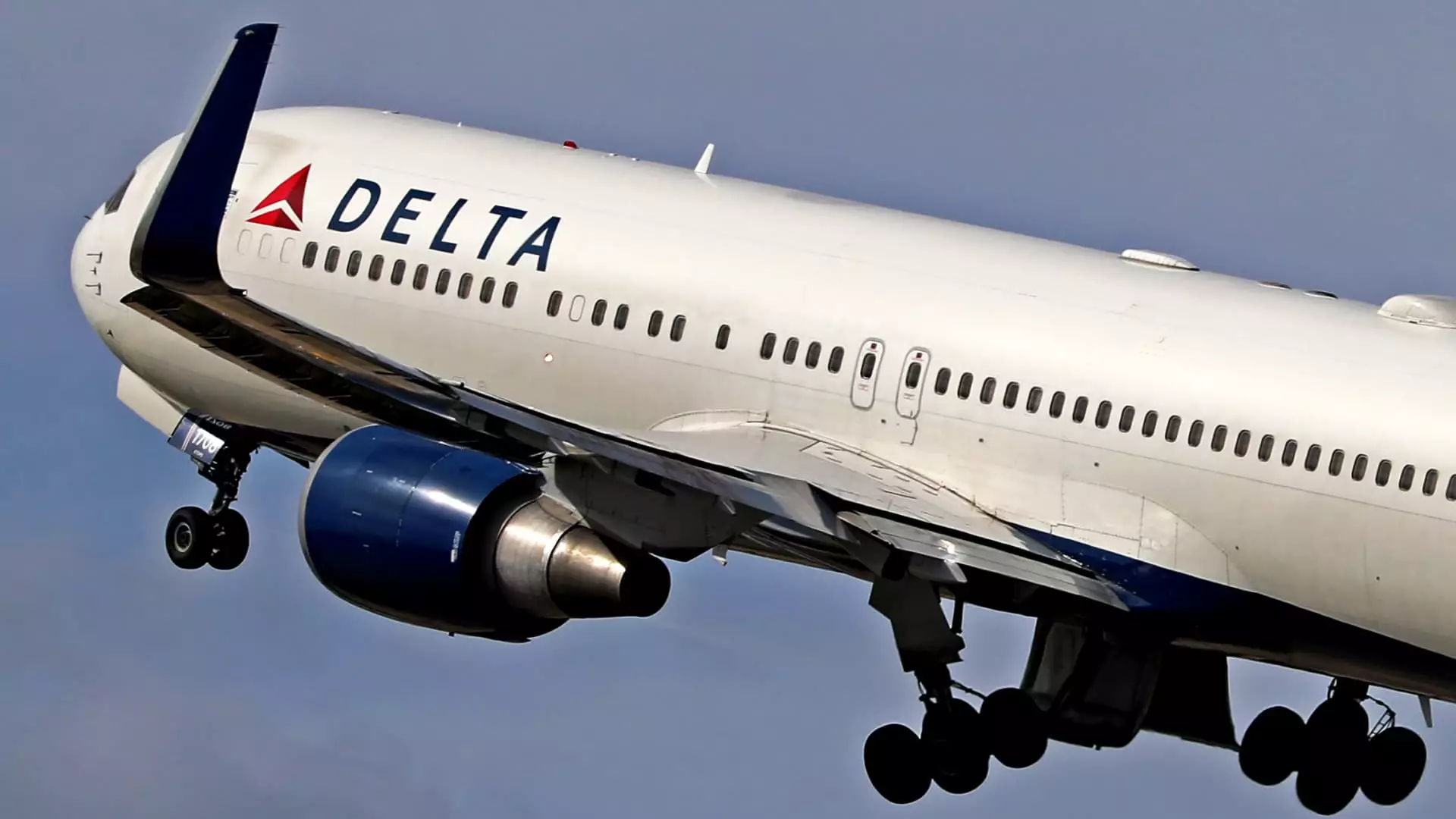As the airline industry grapples with an unexpected downturn, investors are left reeling from the rapid erosion of confidence that has characterized recent market trends. The decline of airline stocks—a sector long viewed as resilient—presents a troubling picture, rooted in a confluence of broader economic challenges and shifting consumer behavior. On Tuesday, shares of major carriers such as Delta Air Lines experienced a sharp decline, highlighting how fragile the aviation market has become amidst looming tariffs and disappointing travel demand.
Downgrades and Declining Forecasts
Delta Air Lines, once heralded for its profitability, faced a significant blow when Jefferies downgraded its stock and slashed its price target nearly in half. While the fallout from such moves is unsettling, it is perhaps the underlying factors that warrant deeper scrutiny. Jefferies’ prediction that Delta may reduce its 2025 earnings forecast illustrates the prevailing uncertainty within the industry. The suggestion that travelers are becoming increasingly price-sensitive lays bare a troubling reality: as consumer confidence dwindles, luxury travel options, particularly in the first-class segment, may not be enough to cushion airlines against ongoing turbulence.
Broader Impacts of Consumer Sentiment
The magnitudes of these financial shifts cannot be understated. Reportedly, airline spending saw a sharp decrease of 7.2%, contrasting with a modest increase in overall household spending. Such a divergence indicates a significant change in consumer sentiment, potentially driven by fears regarding economic stability. The data shared by the Bank of America suggests that these trends could stem from a broader hesitance among consumers to invest in travel, particularly during a season that typically would encourage bookings. This caution is exacerbated by macroscopic factors such as unpredictable weather and the timing of holiday periods, yet it signals a deeper transformation in how people are viewing travel post-pandemic.
The Outlook: Alarm Bells Ringing
With a collective drop of 18% in the NYSE Arca Airline Index during the first quarter, the airline sector is now at a precipice. For an industry that once thrived on the very essence of connectivity, the current environment poses existential questions. Notably, the stock performance of American Airlines and Southwest Airlines paints a worrying picture—a sector braced under the weight of economic dread. United Airlines, though still backed by Jefferies as a buy, is not escaping entirely unscathed, with drastic cuts to price targets signaling cautious optimism at best.
A Call for Strategic Reassessment
The turmoil affecting airline stocks signals a need for industry leaders to engage in deep reflection and reevaluation of their business strategies. As concerns for demand persist, airlines must pivot towards understanding their consumer base better than ever. Stakeholders must acknowledge that consumer behavior is shifting, as fears of recession loom larger than travel itineraries. In this nuanced landscape, clear communication and adaptive strategy will be crucial for airlines to navigate the next phase of recovery, lest they become victims of their market realities—riding the turbulence without a clear flight path ahead.



Leave a Reply